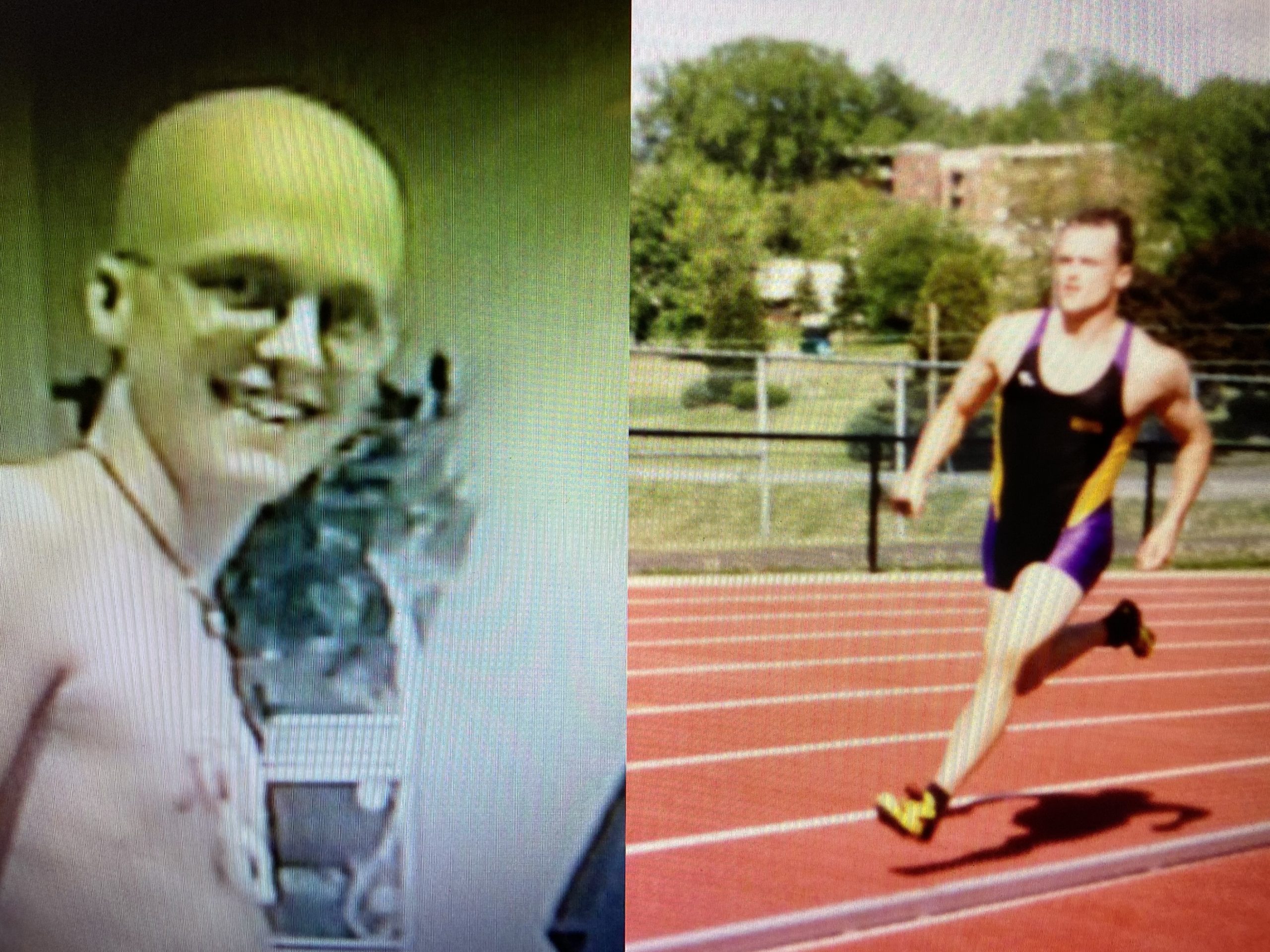Written by admin
Posted on: August 31, 2020

1 – I am not the body that I identify with.
Prior to my cancer diagnosis I identified heavily with being an athlete. I was young, strong, fast. I was a New England Prep School Track and Cross-Country champion and played on one of the best high school hockey teams in the country with two of my teammates drafted to the NHL when I was junior. Even as I write this, I feel those old remnants of that athlete identity that my ego so carefully built and that felt so important. But then cancer tore it down. I also took great pride in my academics. But in the midst, and aftermath, of chemotherapy I learned “chemobrain” is real! Focus was difficult and the identity of scholar was stripped away. At my sickest in April of 1997 my lungs were choked with leukemia cells. I required supplemental oxygen to force enough through the thickened lung tissue to the red blood cells struggling to deliver O2 molecules to the vital tissues of my feeble body.
If I was not those identities, who was I? There was an essence of who I was beneath the identities I had created. I could feel it when I was in the moment, in pure awareness, detached from past and future and the suffering that can bring. That was the space I entered the night after my oncologist delivered the news that my treatments had failed, that the life-saving bone marrow transplant was not possible, and that I had months, maybe weeks, left to live. As a lay in bed that night crying, I suddenly felt a peace sweep over me. I did not recognize it then, but it was my first experience of surrendering what was uncontrollable and sitting in pure awareness, in the exact eye of the moment, detached from any thought about the past and any thought about the future, detached from suffering. It turns out staying in this place is quite a challenge! As I recovered, I started steadily building new identities. I built back the athlete and the scholar. Then I worked really hard on some new ones: husband, father, doctor. The difference now is that I can work hard at these without the unhealthy clinging. Social roles are required to live in this world, but we don’t have to cling to them, we don’t have to take ourselves too seriously.
2 – Family and friends mean everything.
When identities are stripped away, and we are left standing naked it is the precious human relationships that hold us up. How we allow these connections to support us is often under our control. Do we open ourselves up with vulnerability or do we close off and push people away? Power comes from vulnerability and meaning comes from human relationship and relationship to our creator (see below). My diagnosis brought me closer to my family. When I left with my mother for my planned bone marrow transplant in Seattle, WA in the early morning hours in March 1997, taped to the door was a note from my youngest brother. What might have taken years to say, or maybe never explicitly said, was spelled out… Love. I felt it from my friends, but as a 19 year old guy usually more in the form of humor, summed up by my best friend’s response after telling him about my diagnosis, “Well I guess this means I have to put money in the Jimmy Fund can at the movies now.” He is now godfather of one of my sons.
3 – There is a force at play greater than us.
I won’t belabor this one, except to say a cancer diagnosis can be the ultimate trigger to starting (or resuming) a spiritual journey. It did this for me. I had no religious background, but I felt through the process that there was a greater power / spirit / God that I could surrender the uncontrollable aspect of the journey to. When I did so whole-heartedly it helped put me in the eye of the moment and detach from suffering (as noted above). I came to believe that there was an essence of me, soul perhaps, that coalesced around my physical body and mind but was infinite and timeless. My spiritual journey started with my diagnosis at age 19 with a mindfulness meditation practice and did ultimately take me on a Christian trajectory culminating with my adult baptism alongside my youngest son. I would describe my current spiritual leanings as most consistent with Christian mysticism mixed with Buddhism, a general seeking of Truth, and centered around a daily meditation practice.
What are the greatest lessons you’ve taken from your journey with cancer? Where are you still stuck? If you’ve read this to the end and never experienced a cancer diagnosis, try substituting the hardest thing you’ve ever faced. Growth comes from processing trauma / suffering. Look for the gifts. Maybe there are some there that you haven’t yet opened. You are the author of you story.
Trevor Bayliss, MD

